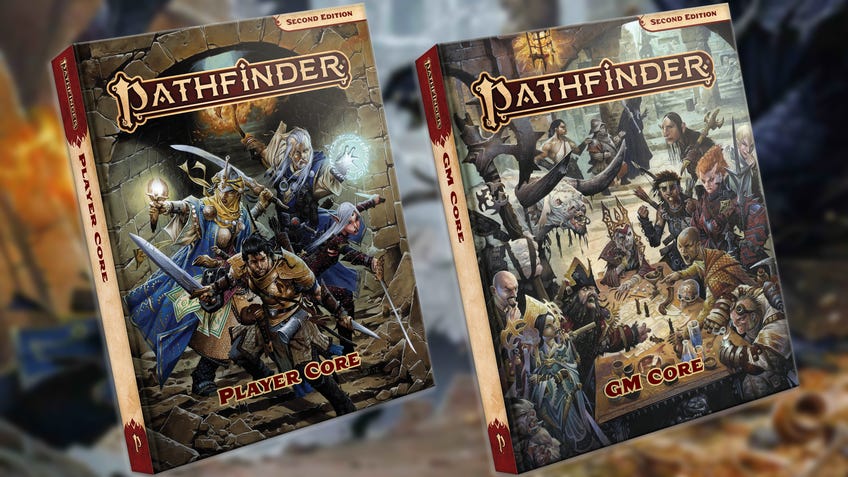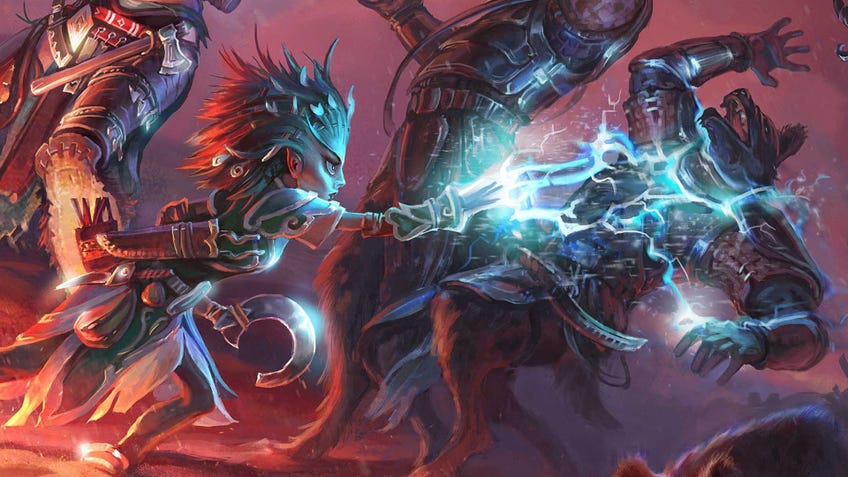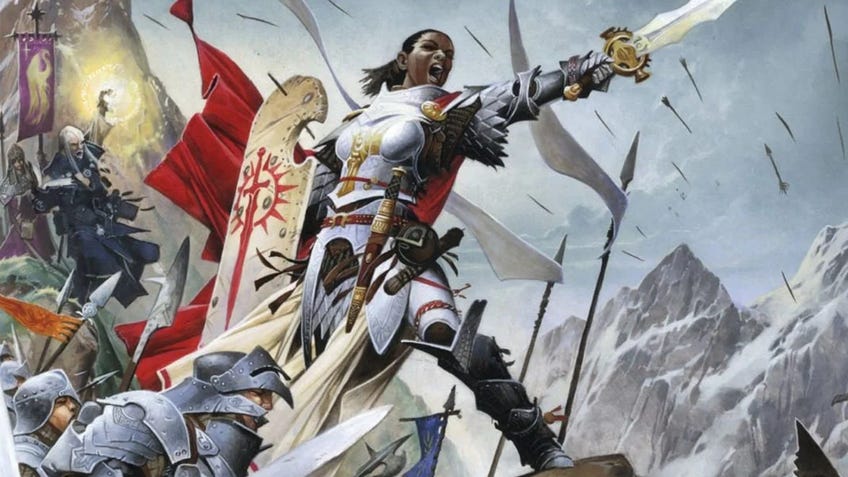Pathfinder maker releases final - and forever permanent - version of its RPG open gaming licence rival to D&D’s OGL
“The whole point of the ORC is to give the gaming community comfort, confidence, and certainty."
Pathfinder studio Paizo has released the final iteration of its Open RPG Creative License, originally announced earlier this year in response to the controversial - and since reversed - changes to Dungeons & Dragons’ own Open Game License.
The ORC was spawned in mid-January in the wake of Wizards of the Coast’s leaked OGL 1.1, which looked to clamp down on creators who used D&D’s gameplay system in their own creations with the introduction of tiered royalties and the power to revoke the previously irrevocable agreement. Those creations included both Pathfinder and its later sci-fi spin-off Starfinder, which were originally built on the framework of D&D 3.5.
While widespread backlash from creators and players saw Wizards U-turn on the proposed changes to D&D’s OGL, as well as subsequently releasing the game’s core rules under an open Creative Commons licence, Paizo pressed ahead with its own plans to launch the rival ORC as an effort to “irrevocably and unquestionably keep alive the spirit of the Open Game License”.
The ORC was outlined as a licence designed to be explicitly system-agonistic, meaning any game’s system and gameplay elements could be released for other creators to subsequently use in their own creations, as long as they attributed any reused elements appropriately. The licence’s open nature means that it can be used for other games, such as board games or even video games, as well as tabletop RPGs.
Rather than being owned or controlled by Paizo or its legal firm Azora Law, which helped draft the document, the publisher vowed to release the licence into the public domain in a way that would mean it could never be changed or rescinded in the future.
The publisher also invited creators and the public to openly comment on its in-progress document, releasing a first draft in early April. According to Paizo, over 1,500 publishers both big and small pledged their support to the licence in its first week, including Call of Cthulhu maker Chaosium, Numenera creator Monte Cook Games and Deadlands studio Pinnacle Entertainment Group.

Following feedback from the community, the publisher has now released the final version of the ORC, which it reiterated as now being permanent for good.
“No one has the power to change or revoke the ORC License,” the cheekily-titled accompanying Answers & Explanations - or ‘ORC AxE’ - document confirms. “Once the Licensed Material is out there, it is out there forever (as long as copyright lasts) under these same terms.”
The finalised ORC licence effectively allows creators to release the core functional parts of their game’s gameplay system - in other words, the rules that let you actually play - as specified in a systems reference document (SRD) for use in any way they like, from other games to podcasts or even AI. The default licence doesn’t allow the use of specific lore or story elements, characters, artwork or other such ‘reserved’ material, unless the licensor explicitly declares it okay.
“Roleplaying games do an amazing job of infusing protectable creative descriptions with unprotectable game rules in a way that is challenging to separate under copyright law. This complexity has had a stifling effect on creativity in our industry,” the FAQ adds, acknowledging the often blurry conversation around legal protection of game mechanics as something that the licence intends to make clearer: “While there are strong arguments regarding the degree to which pure game mechanics are subject to copyright, placing this notice in your work removes any doubt and makes those mechanics expressly available under the license terms.”

The document adds that the ability of other creators to re-use specific elements offered through the ORC - and then have their own creations subsequently freely built upon - is a key differentiator from the Creative Commons licence adopted by Dungeons & Dragons, and one of the reasons that the ORC didn’t adopt the same approach despite “tr[ying] hard to make [it] work”.
“Wizards of the Coast released some of their content under CC BY 4.0, which gives everyone the right to use the contents of the SRD WotC designated,” it explains. “This was a wonderful assurance for the gaming community that 5e could confidently be used forever.
“Unfortunately, if another publisher builds on that SRD, they are under no obligation to relicense their innovations to the community. This effectively kills the virtuous circle that open-source communities are built on. The ORC License intends to ensure those who innovate off material licensed under the ORC must release their own innovations under the same permissive license that enabled their product in the first place.”
The complete ORC and its Answers & Explanations FAQ can be downloaded from Paizo’s site now, along with redlined editions highlighting changes from the previous drafts. Azora has submitted the licence to the US Library of Congress as a registered copyright in order to ensure “an unalterable disinterested party (the US government)” remains in control of the document.
“The whole point of the ORC is to give the gaming community comfort, confidence, and certainty,” the licence states. “It gives our community a license that is not reliant on any one company.”


